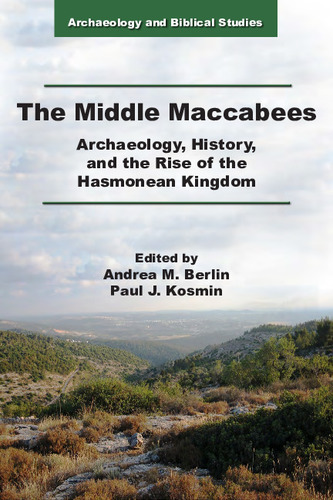| dc.contributor.author | Coskun, Altay | |
| dc.date.accessioned | 2023-05-03 13:09:40 (GMT) | |
| dc.date.available | 2023-05-03 13:09:40 (GMT) | |
| dc.date.issued | 2021-07-01 | |
| dc.identifier.uri | https://doi.org/10.2307/j.ctv1k531p8 | |
| dc.identifier.uri | http://hdl.handle.net/10012/19401 | |
| dc.description.abstract | The present narrative of Seleucid dynastic history is written against a scholarly background that tended to emphasize the weakness of the kingdom beginning with the death of Seleucus I Nicator (316/12–281). But there had been repeated recoveries throughout the 3rd century, before the realm was thriving again under Antiochus III Megas (223–187). His defeat by the Romans in 191/90 was harsh, but no final blow, and his son Antiochus IV Epiphanes (175–164) was once more the most powerful monarch of his time. The kingdom underwent several challenges from 168 to 160, but was firmly consolidated by Demetrius I (162–150). The alliances he made with Pharnaces I of Pontus, Ptolemy of Commagene and initially also with Ariarathes V of Cappadocia, besides defeating Judas Maccabee in Judaea, demonstrate his statesmanship from early on. With the defeat of Timarchus, the satrap of Media, and Artaxias, the King of Armenia, he took firm control of the realm. His rule was fully established with his recognition as rex (though not yet amicus) by the Senate in 159. The Attalids, however, won back the allegiance of Ariarathes. This resulted in Demetrius’ temporary support for his rivaling brother Holophernes, which induced Attalus II to set up Alexander I Balas as a rival to the throne. Recognized by Rome, he began using Ptolemais in Phoenicia as his base in 153. When Ptolemy VI Philometor joined the coalition (151), Demetrius’ hold of the Levant disintegrated, and he was killed in 150. Continued Ptolemaic interference prevented Balas from rebuilding trust in the vaning dynasty, which allowed the Parthians to break free, before invading Media (148/47) and Babylonia (142/41). There was hope for recovery under Demetrius II (147–138, 129–125), but these were dashed when King Mithradates captured him in Media (138). The most promising candidate to stop the rapid dissolution was his brother Antiochus VII Sidetes (138–129), but he, too, was defeated in Media and thus sealed the permanent loss of all territories east of Syria. Ongoing dynastic rifts, intermingled with Ptolemaic throne wars, wore off the left-overs of the greatest Successor Kingdom over the next generations. | en |
| dc.language.iso | en | en |
| dc.publisher | Society of Biblical Literature | en |
| dc.relation.ispartofseries | Archaeology and Biblical Studies;28 | |
| dc.subject | Antiocus III Megas | en |
| dc.subject | Antiochus IV Ephiphanes | en |
| dc.subject | Demetrius I Soter | en |
| dc.subject | Alexander Balas | en |
| dc.subject | Demetrius II | en |
| dc.subject | Antiochus VII Sidetes | en |
| dc.subject | Roman Senate | en |
| dc.subject | Judas Maccabee | en |
| dc.subject | Ptolemy VI Philometor | en |
| dc.subject | Timarchos | en |
| dc.subject | Holophernes | en |
| dc.subject | Attalus II | en |
| dc.subject | Ariarathes VI | en |
| dc.subject | Seleucid dynasty | en |
| dc.subject | dynastic infighting | en |
| dc.subject | Mithradates of Parthia | en |
| dc.subject | Arsacid kings | en |
| dc.title | Seleucid Throne Wars: Resilience and Disintegration of the Greatest Successor Kingdom from Demetrius I to Antiochus VII | en |
| dc.type | Book Chapter | en |
| dcterms.bibliographicCitation | Coskun, Altay. Seleucid Throne Wars: Resilience and Disintegration of the Greatest Successor Kingdom from Demetrius I to Antiochus VII, in Andrea Berlin & Paul J. Kosmin (eds.): The Middle Maccabees from the Death of Judas through the Reign of John Hyrcanus (161–104 BC). New Archaeological and Historical Perspectives, Atlanta, GA: SBL Press, 2021, 269-291. | en |
| uws.contributor.affiliation1 | Faculty of Arts | en |
| uws.contributor.affiliation2 | Classical Studies | en |
| uws.typeOfResource | Text | en |
| uws.peerReviewStatus | Reviewed | en |
| uws.scholarLevel | Faculty | en |

